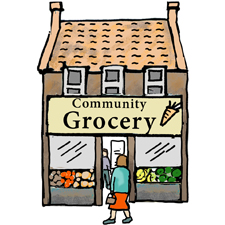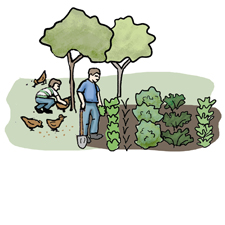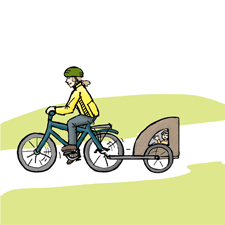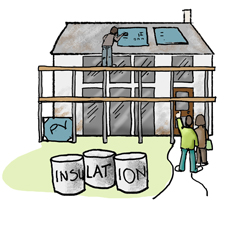The key outcomes that we were aiming to achieve this year were:
- People will be more aware of, engaged with and excited by the challenge of moving to a low-carbon future
- People will be making fewer unnecessary journeys and will be transferring private car journeys to public transport, walking, cycling and car-sharing
- People will have easier access to locally produced food, will have reduced the amount of food that they waste and will have increased local nutrient recycling through composting
- People will have reduced their home energy consumption by being more energy aware and by implementing home energy efficiency measures
- More households will have installed micro-generation and permissions for larger scale community owned wind turbines will be in place
- There will be a stronger and more supportive infrastructure in place to support our community’s move to a low carbon future
Overall, we have succeeded in meeting all these outcomes. More people are undoubtedly aware of our activities, participating in projects and accessing our support services. Many people are clearly excited by the opportunities of getting involved in creating a resilient, low carbon future but, at the same time, it has recently become clear that a small but vocal minority feel suspicious of or misunderstand our aim. We are in the process of seeking to address issues that have been raised and of reviewing our communications strategy.
Our recent travel survey has clearly shown that people are travelling less and making more use of public transport, walking and cycling. Some of this quite significant change is very likely to be due to increased fuel costs and general austerity. However, those who have accessed our travel advice do show a greater level of behaviour change.
Participants in the Household Canny Challenge are starting to grow more of their own food and several groups are making plans for food growing projects in public space. There is a growing network of enthusiastic worm composters, although this project took longer to get going than we had anticipated.
Our survey of households that had received an energy audit showed very similar results to on average to the previous year, with estimated average savings of about 18% on annual energy consumption. Some households achieved much greater savings, showing that energy aware behaviour can itself make a significant difference.
40 households installed photovoltaic panels following our negotiation of a discount deal with local installer Lothian Solar. This number would have been significantly higher if the UK Government hadn’t caused such confusion with their bungled changes to the Feed in Tariffs. Quite a number of other households have installed wood burners, pellet stoves, heat pumps and solar thermal panels. We have not yet secured planning permission for our proposed community wind turbine but the application will be lodged shortly and we have demonstrated clear public support.
We have a close working relationship with East Lothian Council and other community planning partners and while there is still much to do to ensure that we are all pulling in the same direction, a good start has been made. At the same time, we have been able to support the development of local services such as the Community Bakery and the development of other projects that are all starting to contribute to the creation of a more resilient community.
More specific outcomes related to each strand of our funded projects are detailed below.




